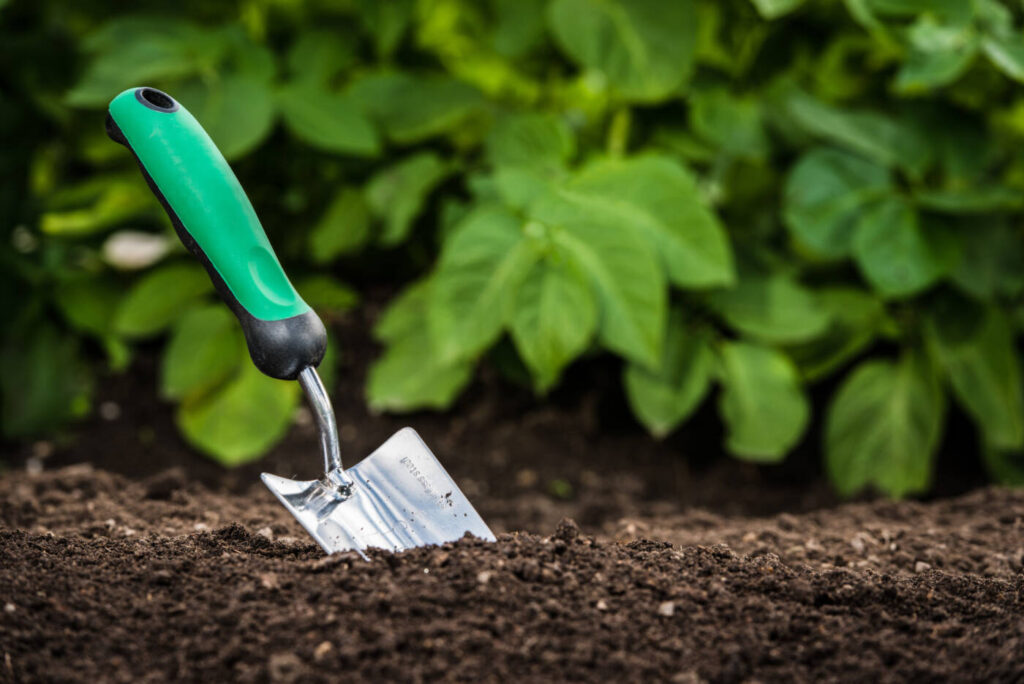5 Essential Summer Gardening Tips
 Summer is usually a thrilling season for gardeners. Plants will grow and thrive outside at their best when the air and soil are warm. Gardeners and farmers worldwide eagerly await every warm growing season.
Summer is usually a thrilling season for gardeners. Plants will grow and thrive outside at their best when the air and soil are warm. Gardeners and farmers worldwide eagerly await every warm growing season.
But this year’s summer will be truly memorable. As the world returns to normal, people are all looking forward to getting outside and planting.
Although summer is a beautiful time to plant, it’s also challenging for many farmers. Continue reading to learn the 5 best summer gardening tips.
1. Clean Up the Garden
Cleaning up the garden is an activity that is instantly pleasant and makes a significant difference. Spend an hour in the yard with an empty bucket and a sharpened set of pruners.
Begin by pruning any bulb leaves that have turned brown. Then, cut any used bloom from your plants. When you remove all browning flowers, it will feel amazing.
It’s also a good time to trim any spring-flowering shrubs in early summer. For example, trim forsythias, lilacs, and viburnums that have just completed blooming on old wood.
This summer, these shrubs will develop their buds for the following year. So prune them now to avoid unintentionally chopping off those new bloom buds.
Summer is also an excellent time to prune and shape your evergreen boxwood and holly bushes. This is after their spring rush of the new leaf has faded.
To complete this operation, utilize a pair of electric hedge trimmers. They can help to quickly and efficiently create tidy box hedges.
2. Water the Plants Appropriately
The hot, dry summer months necessitate extra watering to maintain your landscape green and healthy. But remember that overwatering can harm lawns and plants.
Overwatering causes diseases, crabgrass, and shallow roots. There are also higher water charges and wasting a precious resource.
Here are some simple ways to help you avoid overwatering your plants and grass:
Take a step on it: Grass doesn’t always require water just because it’s hot outside. Put your foot on the grass. If it springs back, it does not need water.
A low-cost soil moisture sensor may also display the level of water in the plant’s roots. It can also help to prevent overwatering.
Leave it for a while: Raise the blades of your lawnmower. Longer grass stimulates deeper root growth. This leads to fewer weeds, a more drought-resistant lawn, and less evaporation.
Keep an eye on your timing: Water early in the morning to minimize evaporation. If rainfall has been sparse, keep an eye for drought stress and water as needed. It would help if you concentrated watering on new plantings to help them develop.
3. Feed the Flowers
Keeping your annual pots well-fed is more vital than ever during the summer months. This is especially vital when they’re growing like crazy.
You’ll need to give water-soluble plant food frequently. But this should happen if you cultivate “hungry” flowers like calibrachoa and petunias. It would be best if you fed them each third time you water.
Or else, you can feed them every week if that is easier to recall. Some people like feeding their flowers on a “Fertilizer Friday.” This is great.
Many blooming perennials that were fed in the spring might benefit from another feeding in early to midsummer. Perennials benefit from slow-release organic plant food, such as Espoma’s Plant-tone®.
Don’t fertilize perennials from August. This is to give them time to reduce their development rate naturally. This will happen when fall weather comes, and they’re ready to sleep for the winter.
4. Control Pests the Natural Way
Because many pests are opportunists, healthy plants are more resistant to pests than weak ones.
You should pay attention to promoting health. This should happen from the start by choosing healthy seeds and seedlings. They should be disease-resistant and suitable for your environment.
Strong seeds are more likely to grow plants that don’t require pesticides. Plant at the appropriate time of year and regularly check the soil temperature and moisture.
You can also use biological controls to attract birds and beneficial insects that consume pests.
You can have ladybugs and their larvae, for example. They consume aphids, mites, mealybugs, and whiteflies. Other helpful bugs are dragonflies, lacewings, spiders, ground beetles, centipedes, and big-eyed bugs.
Because many pests are more active in warm weather, look for early warning signs. This will help you begin treatment before bugs establish a stronghold.
It would be best if you were cautious when selecting a pesticide or fungicide. For instance, check for the numerous organic, non-toxic choices that are now available.
Look for the OMRI-listed label. This indicates that the item is organic under the USDA’s National Organic Program. Organic gardening supplies are often a safer and better choice than standard ones containing harmful chemicals.
5. Adapt to the Current Climate Change
There is unpredictable nature and extremes of weather. Thus, you should adjust your plantings and garden designs to maintain their success.
When determining what will work in your area, consider weather variables. For instance, check heat, wind, rain, or extreme cold.
If you live in a windy region, you should plant native trees and low-growing shrubs and plants. These are beneficial wind barriers.
Add a thick layer of mulch to your garden. This will help to shelter plants from the cold and dry weather.
It would be best if you also planted natural trees like oaks to offer shade in your yard. This will allow you to enjoy your yard more during the hot summer months.
Use The Above Summer Gardening Tips to Help Your Garden Thrive in Summer
We hope these end-of-summer gardening tips remind you what you should be doing to become a better gardener. You can improve your quality of life while conserving resources and assisting your land to become more productive.
If you don’t have enough time to care for your yard, consider hiring a professional gardener.
At Design Custom Homes (DCH), we provide garden maintenance to South Central Wisconsin residents and the surrounding places.
Call us today to book an appointment.
